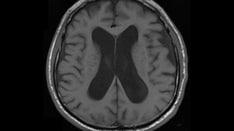This transcript has been edited for clarity.
Hi. I'm Art Caplan. I'm at the Division of Medical Ethics at NYU's Grossman School of Medicine.
We all know that COVID-19 took a terrible toll — and continues to, by the way — on public health in America and many other countries. You can look toward China where battles are breaking out about quarantine and people are speaking out against the Chinese government, which is unheard of. That's the level of burden that many feel by being locked up for long periods of time.
In the US, we underwent tremendous harms due to COVID-19. We had schools close and many businesses did not operate. We had people trying very hard to get to work but were exposed in the earliest days of COVID-19 without adequate protective gear.
It's the school situation I want to focus in on and get you to think about more than some of the many other psychological, physical, or death problems that COVID-19 brought in its wake.
We closed our schools in many parts of the community. There was also masking going on when things got going. People knew that many schools had poor ventilation and were reluctant to send students back into environments where airborne disease, particularly COVID-19, was a huge risk.
Numbers and studies have shown up in the past few months that show what a terrible toll these closures and remote learning efforts took on our kids. If you look at studies of eighth graders, their math and reading scores slipped almost a grade level. It was even worse for some younger kids. If you were poor, in relatively deprived neighborhoods, trying to do remote learning or tele-education caused more problems with even more slippage in reading and math performance.
By the way, some of these harms trickled up through the college level. There were people who dropped out or didn't do as well, including some pre-med students and others, who were harmed in terms of grades or attendance. I've heard one or two stories that these things even trickled up as far as medical school, where people had difficulty staying abreast of their peers in terms of learning. Although there was not as much damage there, I've heard stories from some of you about students who seem to have fallen behind.
What we have is a crisis. That has led to bemoaning of the fact that so many people are falling behind. I've actually heard some people say, "Well, at least everybody fell behind equally," although that isn't true. The poorer you are, the worse the harm that befell you.
Even if everybody fell behind, say, 6 months, a year, or more in math and reading performance, which are basic skills, why aren't we talking about remedial efforts to let people catch up? I have not heard much discussion, if any, of what we ought to do at all levels of education — high school, elementary, college, med school, nursing, whatever it is — to try to make up for this lost set of months and years. Are we just going to sit here and say, "Well, everybody fell behind and that's too bad"?
My proposal is simple: We ought to declare an amnesty. Don't just worry about student loans and forgiving them. Why don't we say, "You can have a free summer of catch-up work or a free winter break of catch-up work"? I'd even go so far as to say, "If you want a repeat, say, a year or a semester, you ought to be allowed to do that without penalty."
We need to take this damage to our young people seriously. It's not going to do us any good in a highly competitive world to find out that they're way behind other nations in terms of their skill sets. It's not going to do us any good in healthcare — which increasingly relies on technically savvy, reading-competent, math-competent people — to find out that we have a damaged workforce.
We have an emergency. COVID-19 continues to cause emergencies among Americans, and one is the damage that has been caused to educational achievement. We need a program and a commitment, and we need to recognize that we have to give time and allow everybody to make up that progress.
It does us no good to pass people on to the next grade with weak foundations in math and reading. That's not going to do anybody any good in any occupation.
I hope we can start to take this problem seriously. If you don't like my ideas of make-up work, repetition, a free semester, or voluntary summer school, I'm very open to hearing about other ideas.
Let's do something. Let's not ignore what is perhaps some of the worst damage that COVID-19 has done, stick our heads in the sand, and say that we'll go forward as if nothing happened.
I'm Art Caplan at the Division of Medical Ethics at the NYU Grossman School of Medicine. Thanks for watching.
Follow Medscape on Facebook, Twitter, Instagram, and YouTube
Medscape Business of Medicine © 2023 WebMD, LLC
Any views expressed above are the author's own and do not necessarily reflect the views of WebMD or Medscape.
Cite this: Arthur L. Caplan. Students Fell Way Behind During COVID; How Can We Help Them Catch Up? - Medscape - Jan 09, 2023.










Comments